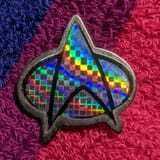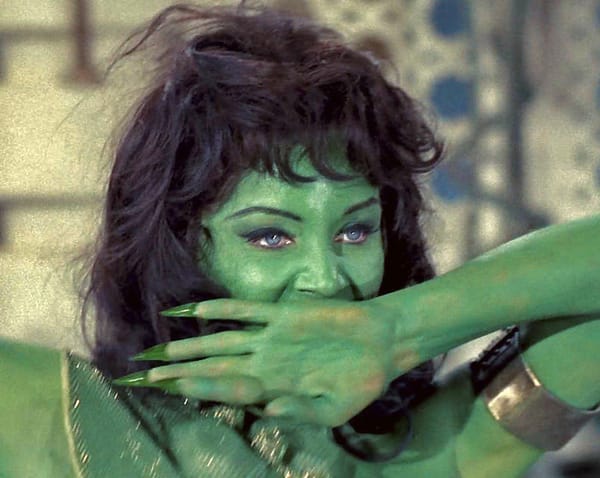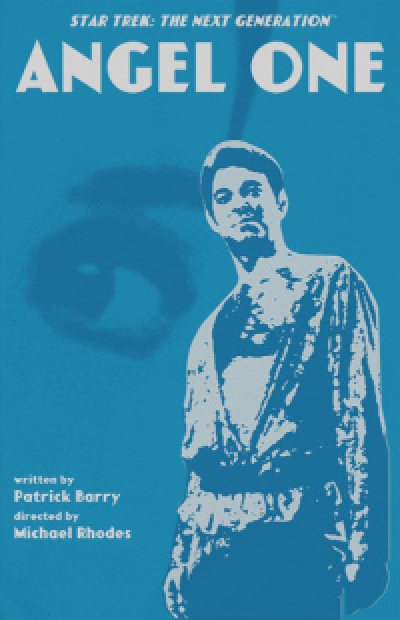Reboot and Reformatting
For nearly 10 years, I co-hosted, edited and published a podcast of the same name as this site. Newsletter? Blog? Do people still call it blogging? It was never successful; when I last checked the stats on LibSyn, we had just past 1000 downloads. I think 90% of the people who listened were friends we know very well. Women At Warp had Ari on as a guest, and that did bump the traffic for a few months, but we were a group of disabled women and scheduling time to record was like herding cooked spaghetti so we recorded a sum total of 24 or 25 episodes in that 9 1/2 years.
In 2014, podcasting was a different beast to the medium it is today. This was a bit before the days of men on couches with microphones and posting to YouTube. Star Trek, in particular, was still a niche for geeks and dorks. The first two JJ Abrahms movies had come out, but we had no idea that there was going to be any new Trek in the pipeline.
I met Ari in person finally, after knowing each other online for a while, and we discovered a mutual love of Trek. I vividly remember that we were walking to Asda when I suggested that we should do a podcast, and everything went from there. Sophie was familiar enough with the franchise and interested in participating - partly to keep Ari and I on track, though that rarely worked - and Angel Two was created. I came up with the name because of the TNG season one episode Angel One was obviously meant to be about gender equality, and we had some notes. I was also astonished that there was another Trek podcast out there, made by two guys who's tagline for their show was that they "were embarrassed to have a Star Trek podcast". It was still a nerd niche to be a Trekkie/Trekker. Maybe it still is to the vast majority of people, but wherever I go online now, everyone loves DS9. I'm glad people finally recognise that brilliance of that show - even if it took the rise of streaming over broadcast television; a global pandemic, and 30 years.
Another shift in the medium is the industry that now exists around it. Ten years ago someone with a decent microphone, editing software (Audacity before it went kerflooey in terms of infosec) and a LibSyn account could make a show. Now, there are recording studios set up for podcasting in most cities. The major broadcasting companies dominate the field - check the top ten shows in your podcast player of choice, and I bet most of them will be from Wondery, the BBC, I Heart Radio and Joe Rogan's show. It's a very crowded market. To stand out probably takes a lot of concerted effort, and maybe some money for advertising. I don't really know, because I hate self-promotion. I did try to tweet and post on Instagram and then on BlueSky, but I just didn't know how to gain traction, so we never did.
The final nail in the proverbial was when I emailed someone who is fairly prominent in the fan commentary sphere, and asked them if they'd be willing to be a guest on our podcast. I didn't really expect a reply, so was stunned when they did reply - and they said yes. Enthusiastically. Things happened, and the recording date was rescheduled three times. On the third occasion, I sat and waited for them to join the call for about an hour, then gave up. I did keep an eye on the channel for the rest of the evening; but nothing. About a week or ten days later, I emailed to ask where things were, making it clear that if they had changed their mind that was fine - I just wanted to know where I stood. I have not had a reply.
I've been flogging a dead targ for too long.
However. In Star Trek, no-one ever really dies.
In many episodes of the podcast, I mentioned writing things because I can organise my words on paper or on a screen far better than I ever could while talking - just ask anyone who has met me. This is me doing that. I have a burning desire to share my thoughts about Star Trek with people. I've been a fan for over 30 years now, and I've watched the show and fandom evolve over that time. I've grown considerably over that period as well; I was 11 or 12 when TNG started broadcasting on the BBC, and 13 or 14 when I actually started watching it in season 3. There are a handful of inflection points in my life that are truly important; that lead to me being the person I am. Becoming a committed fan of Star Trek: The Next Generation was an early one.
So. Five-card stud, nothing wild...



